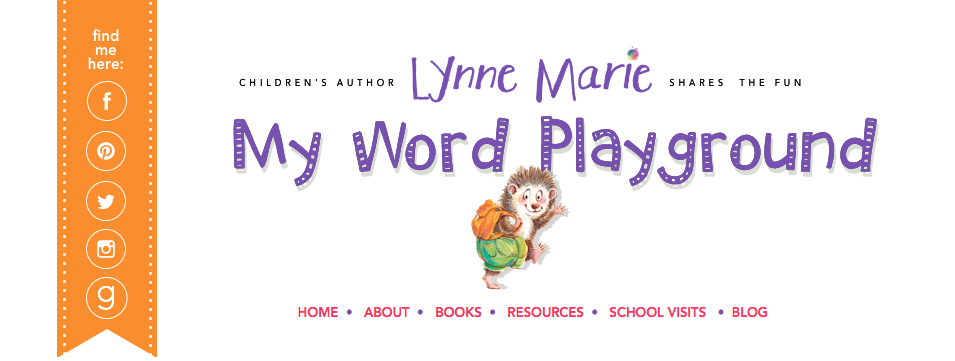Thank you so much for asking me to submit an item to you for your blog in honor of the publication of my latest book, The Greedy Sparrow: An Armenian Tale (Marshall Cavendish, April 2011). I enjoy reading your blog a great deal and think you're providing a wonderful haven for readers and writers alike.
This folk tale has been handed down orally through the generations of my family and has also existed in the greater Armenian oral tradition for centuries. It has been gratifying to put this time-honored story to paper for posterity. I’m also very pleased that the book is releasing in April, which among other things, is genocide memorial month. For me (and many others), this symbolic release date signifies that in spite of genocide, a culture survives.
I trust that I'll not be touching upon a hackneyed subject by sharing a few thoughts with you and your readers regarding prompts for beating writer’s block and procrastination. It’s an issue that plagues me from time to time, and so I’ve compiled five ways to meet it head-on. I hope that at least one tip is new and useful to you and yours!
1) Most often, my writing blocks occur because I have to confront something and don’t realize it yet. Is there something about the project or assignment that’s bothering you? Is there an inconsistency about the plot or character? Is the deadline you’ve set for yourself unrealistic? Once you "name it and claim it," you can resolve it.
2) Once too often, with a whole day ahead of me, I’ve sat at the computer and started out well, only to take a breather and launch the Internet -- which often results in letting precious hours slip by. A timer, in my opinion, is the best way to make use of what would have otherwise been unstructured writing time. When I have a large parcel of time or am feeling reluctant to write, I set our kitchen timer for 15 minutes and write until the bell rings. If those 15 minutes successfully put me into the groove, I continue writing. If not, I hopefully got in a good 15 minutes of creative work. Either way, the timer can spur writing discipline.
3) One of my most effective tools has been to write down random word groupings that please the ear or palate. I also jot down aphorisms, fragmented thoughts, interesting episodes I’ve witnessed, dreams, and real conversations shared or overheard. These can and will come in handy in future writings. So that ideas don’t escape documentation, consider outfitting each room of the house (including the bathroom) with notepads. When you feel blocked, re-read what you've written on these notepads to conjure up ideas.
4) I read as much as I can by authors I admire. Sometimes I’m moved by the cadence of their word groupings, or the sensitivity with which a topic is addressed, or the flow of the narrative. The point is not so much to emulate other authors, but to be inspired by them. Many times I’ve read something so wonderful, it has conjured up a memory or emotion that has put me to work on a writing project almost immediately.
5) My most effective prompt for writing is to pretend I’m writing a letter to a close, trusted confidant. The language I use is nearly always more descriptive and intimate, and the product need not be sent (but sometimes is)!
Kindest regards,
Lucine Kasbarian, author
The Greedy Sparrow: An Armenian Tale (Marshall Cavendish, 2011)
The Armenian-Americans (Cobblestone magazine/ Carus Publishing, 2000)
Armenia: A Rugged Land, an Enduring People (Dillon Press/ Simon & Schuster, 1998)
Blurb about newest book:
The Greedy Sparrow: An Armenian Tale is from the ancient Armenian oral tradition and culture, which was nearly obliterated during the Turkish genocide of the Armenians, Assyrians and Greeks in 1915. The author learned the tale from her father, editor and columnist C.K. Garabed, who would recite it to her at bedtime. He had learned it from his own grandmother, a celebrated storyteller from the Old Country. The tale was first put to paper by Armenian poet Hovhannes Toumanian at the turn of the 20th century. The Greedy Sparrow is the first time this tale has been presented in the English language as a children’s picture book. The story begins in old Armenia with a sparrow who catches a thorn in his foot. As he asks for help, he sets off an intriguing cycle of action that transports him through the Armenian countryside, encountering people engaged in traditional folkways. The Greedy Sparrow ends with a surprising twist and conveys moral messages about greed, selfishness and using one’s judgment. To address the ethical and human components of the tale, a discussion and activity guide has been prepared and can be accessed here:



























These are great tips! Good luck with your book!
ReplyDeleteSusanna, I just visited your blog!
ReplyDeleteLucine, It's great to be inspired by others.
Lynne, I love, love, LOVE the new look of your blog. It's absolutely awesome. Great job!
Thanks so much, Christie! So glad to see you again. I've been wondering where you were and how you have been doing -- Lisa of YBR did the blog, by the way <3 She did a fantastic job! (((HUGS)))
ReplyDelete